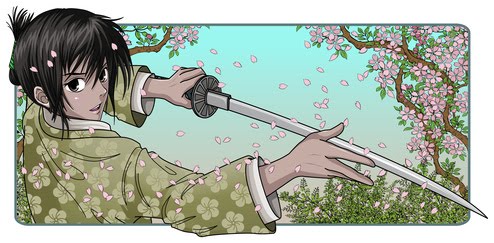There are two elements to the craft of narrative fiction that interest me just now. First, of course, is to be open to the way a story unfolds gradually as you write. It is possible to have a sense of the overall shape of the narrative at the outset. But it is important to let the particular scenes and characters you are working on at any given moment shape and reshape that narrative. Let the story grow as you go. Don't trap it in a too rigid form worked out in advance.
The second element is touch. The trick is to convey a complex experience, in a scene or a conversation, without stepping all over it. As a writer, you are not merely describing facts. You are primarily working with the imagination of your reader, planting suggestions, manipulating implications, inducing it to do the main work of painting in the details of the scene. Your descriptions have only a limited ability to paint a scene, but your reader's imagination has an unlimited power in this regard.
The previous post brought up the difference between "showing" and "telling." A scene retold can be dry and flat. But showing a scene can be more vivid. It invites your reader to recreate the perceptual experience of an event in imagination. But it is important to remember that there is a limit to how much detail can be shown before the imaginative/perceptual experience becomes oppressive to your reader. Just as in living perception, you don't turn your attention to every detail of an experience, a writer should not try to overburden the reader with too many imagined details. It is possible to recall details in a perceptual experience that were not originally attended to. It is in the nature of perception that there is always more to it than you can articulate at any one moment.
A writer uses the reader's imagination in the same way that the reader uses the powers of perception. Even though more detail will make for a more vivid depiction of a scene. This will tend to obscure the other dimension of perception, namely that there always seems to be more to it than we notice at first. Experience is vivid not only because it is rich with detail, but also because it always seems to exceed the limits of our powers of attention. If we ignore this other dimension, we risk producing a rich depiction that still lacks the feeling of limitlessness that we find in all genuine experiences.

No comments:
Post a Comment